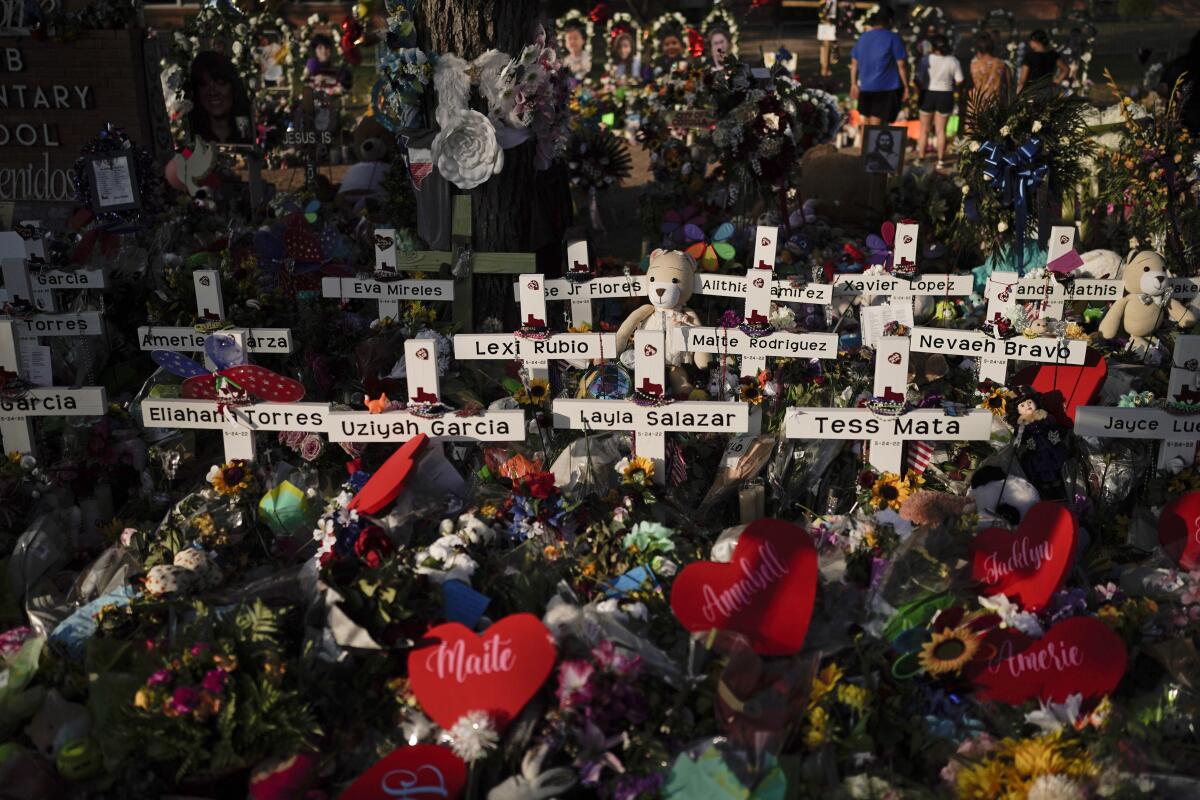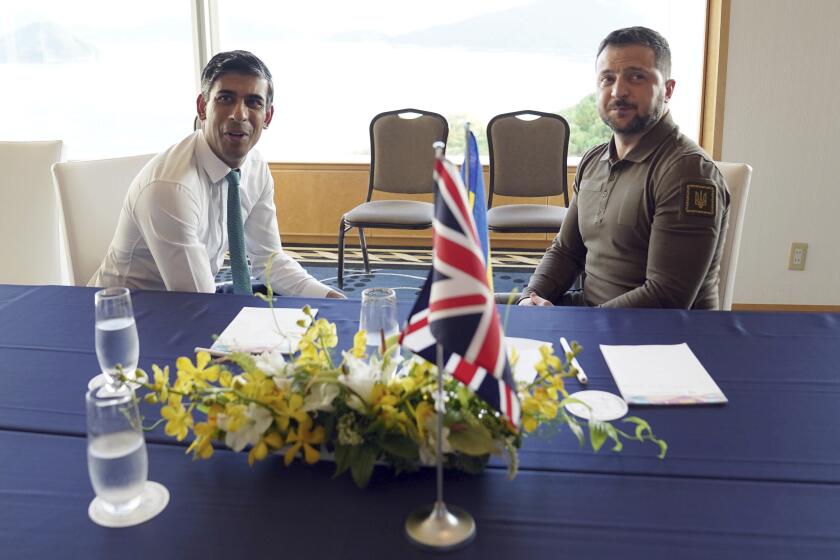Uvalde families dig in for new test of gun industry protections

- Share via
AUSTIN, Texas — After Mayah Zamora was shot and wounded at Robb Elementary School, her family did what many mass shooting survivors do: They sued.
They sued the store off Main Street in Uvalde, Texas, that sold the 18-year-old gunman his AR-style rifle. They sued the gun maker. And they sued police who waited 77 minutes outside Mayah’s fourth-grade classroom before stopping the shooting that killed 19 children and two teachers.
“Mainly what we are looking for is some sort of justice,” said Christina Zamora, Mayah’s mother.
Zelensky’s in-person visit to the G-7 summit comes just hours after the U.S. agreed to allow training on potent American-made fighter jets.
As the grim frequency of gun violence continues, both the U.S. government and gun manufacturers have reached large settlements in recent years following some of the nation’s worst mass shootings. In April, the Justice Department announced a $144-million settlement with relatives and families of a 2017 Texas church attack, which was carried out by a former U.S. airman with a criminal history.
The lawsuits, say relatives and victims of mass shootings, are an effort to get accountability and prevent more attacks — by forcing reforms, hitting the gun industry’s bottom line and strengthening background checks.
But despite two high-profile settlements in the last year involving gun manufacturers, and Democratic-led states rolling back some industry protections, not only do high hurdles remain for lawsuits to succeed, but in some places the hurdles are growing taller.
On May 11, Tennessee GOP Gov. Bill Lee signed a new law that further shields gun manufacturers from lawsuits, weeks after a shooter at a Nashville school killed six people.
It comes as attorneys say the narrow path for victims to bring lawsuits has begun to widen, including for families in Uvalde, who on Wednesday will mark one year since the most deadly school shooting in Texas history.
“I think there are more opportunities for accountability than maybe there were five to 10 years ago,” said Eric Tirschwell, executive director for Everytown Law, which for years has brought lawsuits against the gun industry and is also involved in the Uvalde case.
The track record for lawsuits following mass shootings is mixed. The gun industry remains largely protected from liability under a federal law, known as the Protection of Lawful Commerce in Arms Act.
Over the last decade, courts have tossed numerous lawsuits, many of which did not target the gun industry but instead brought negligence claims against the government or the places where the attacks took place. In 2020, the casino company MGM Resorts International and its insurers agreed to an $800-million settlement over a shooting on the Las Vegas Strip that killed 58 people.
Last year, the maker of the rifle used in the 2012 Sandy Hook Elementary shooting settled with families for $73 million over a lawsuit that accused Remington of targeting younger, at-risk males in marketing.
In Uvalde, victims have also accused Daniel Defense, the maker of the weapon used in the attack, of dangerous marketing. The company has denied that in court, and gun industry groups have broadly rejected the argument since the Sandy Hook settlement.
The lawsuits in Uvalde are still in the early stages, and not all families sued. For the Zamoras, they decided to join only after Mayah was released from the hospital, which was not until more than two months after the shooting. Next year, her parents say, they hope she can return to school in person.
More to Read
Sign up for Essential California
The most important California stories and recommendations in your inbox every morning.
You may occasionally receive promotional content from the Los Angeles Times.













